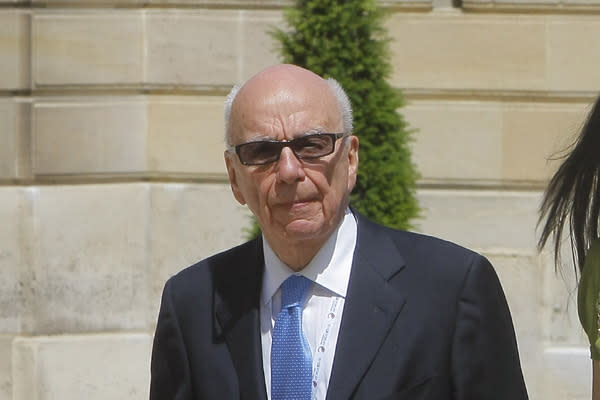 The Cutline
The CutlineNews Corp. drops bid for BSkyB

In the wake of the phone hacking scandal that's rocked Britain, News Corp. has dropped its $12 billion takeover bid for BSkyB.
The company made the announcement on Wednesday just as British lawmakers were preparing to vote on a motion calling for Rupert Murdoch to give up his pursuit of the satellite television broadcaster.
"We believed that the proposed acquisition of BSkyB by News Corporation would benefit both companies," News Corp. chairman Chase Carey in a statement. "But it has become clear that it is too difficult to progress in this climate."
News Corp. "remains a committed long-term shareholder in BSkyB," Carey said, and will retain its stake in the company.
Murdoch and co. were awaiting approval of their $12 billion bid on the 60 percent of BSkyB they did not already own.
"This is a victory for people up and down this country who have been appalled by the revelations of the phone hacking scandal and the failure of News International to take responsibility," Labour party leader Ed Miliband said. "People thought it was beyond belief that [Murdoch] could continue with his takeover after these revelations. It is these people who won this victory. They told Mr Murdoch: 'This far and no further.' Nobody should exercise power in this country without responsibility."
Number 10 Downing Street welcomed the news in its own statement. "[News Corp.] should focus on clearing up the mess and getting its own house in order."
Labour party member Tom Watson said he hopes Murdoch, who has been invited to appear next week before a select committee, will "use the opportunity to apologize to all the people that the criminals in his organization targeted."
In London, shares in BSkyB were down 2.3 percent Wednesday--the seventh straight day of losses, the AP said.
On Wall Street, News Corp. shares, which have fallen sharply in recent days, were trading slightly above yesterday's close.
Beyond the business impact, News Corp's retreat is another public black eye for Murdoch and his media empire.
"It's a huge humiliation," BBC business editor Robert Peston noted. "This was their biggest investment plan of the moment. It was one of the biggest investments they've ever wanted to make . . . . Questions will now be asked whether this is the full extent of the damage to the empire."
Earlier on Wednesday, British Prime Minister David Cameron made a fiery speech to the House of Commons. "There is a firestorm, if you like, that is engulfing parts of the media, parts of the police, and indeed our political system's ability to respond," Cameron said.
